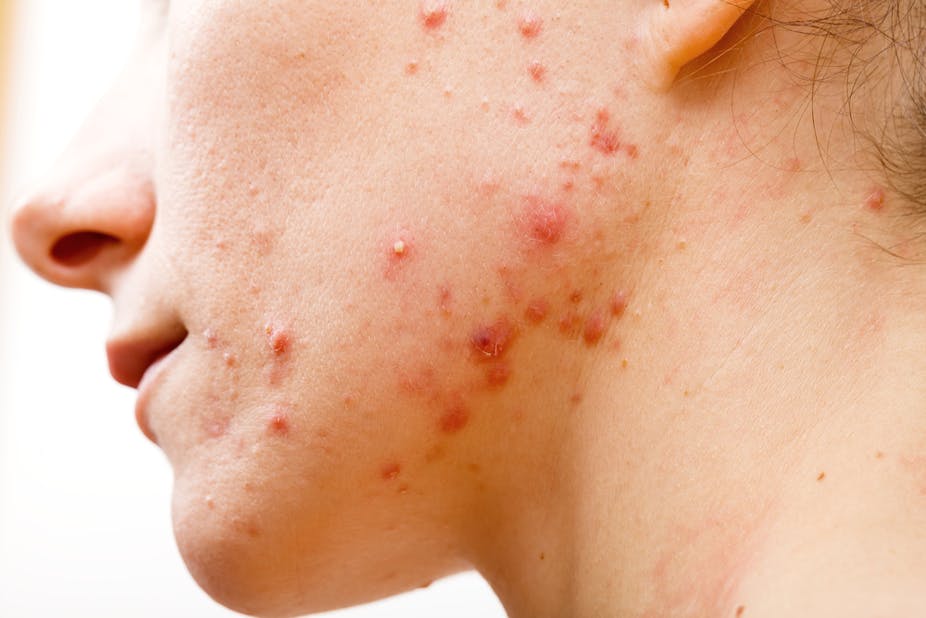Acne is one of the most common skin conditions, affecting millions of people worldwide. It can impact not only your appearance but also your confidence and self-esteem. Fortunately, numerous effective Acne Treatment in Dubai are available to help you achieve clear, healthy skin. This article explores various treatment options, including over-the-counter solutions, prescription medications, and lifestyle changes that can help manage acne.
Understanding Acne: Causes and Types:
Before diving into treatments, it's essential to understand what causes acne. Acne occurs when hair follicles become clogged with oil, dead skin cells, and bacteria. Hormonal fluctuations, especially during puberty, menstruation, or pregnancy, can exacerbate acne. Other contributing factors include:
- Genetics: A family history of acne can increase your likelihood of experiencing it.
- Diet: Some studies suggest that high-glycemic foods and dairy products may worsen acne.
- Stress: Increased stress levels can trigger hormonal changes that lead to breakouts.
- Skincare Products: Certain cosmetics and skincare products can clog pores and contribute to acne.
Acne can present in various forms, including:
- Comedones: Open (blackheads) or closed (whiteheads) clogged pores.
- Papules: Small, raised red bumps.
- Pustules: Red bumps filled with pus.
- Nodules: Large, painful lumps beneath the skin.
- Cysts: Deep, painful, pus-filled lesions.
Understanding your specific type of acne can help determine the most effective treatment.

Over-the-counter (OTC) Treatments:
Many individuals find success with over-the-counter acne treatments. These products typically contain active ingredients that target acne at different levels:
1. Benzoyl Peroxide:
Benzoyl peroxide is a powerful antibacterial agent that helps kill the bacteria causing acne. It also works by reducing oil production and promoting skin cell turnover. Available in various forms, including gels, creams, and cleansers, benzoyl peroxide can be found in concentrations ranging from 2.5% to 10%. Start with a lower concentration to minimize irritation and gradually increase as needed.
2. Salicylic Acid:
Salicylic acid is a beta hydroxy acid (BHA) that helps unclog pores and exfoliate the skin. It penetrates the pores, breaking down the bonds between dead skin cells, which can help prevent the formation of comedones. Salicylic acid is commonly found in cleansers, toners, and spot treatments.
3. Alpha Hydroxy Acids (AHAs):
AHAs, such as glycolic acid and lactic acid, are water-soluble acids that exfoliate the skin's surface. They can help improve skin texture and reduce the appearance of post-acne scars. While AHAs can be beneficial, they may cause irritation in some individuals, so it's essential to start with lower concentrations.
4. Retinoids:
Topical retinoids, derived from vitamin A, are effective in preventing and treating acne by promoting skin cell turnover and reducing inflammation. Over-the-counter retinoids, such as adapalene, are available in gel and cream forms. They can help clear existing breakouts and prevent new ones from forming.
Prescription Treatments:
If over-the-counter options do not yield satisfactory results, consulting a dermatologist may be necessary. Prescription treatments can provide stronger and more targeted solutions:
1. Topical Antibiotics:
Topical antibiotics, such as clindamycin and erythromycin, help reduce inflammation and bacteria on the skin. These are often prescribed in conjunction with benzoyl peroxide to minimize the risk of developing antibiotic resistance.
2. Oral Antibiotics:
For moderate to severe acne, oral antibiotics like doxycycline or minocycline may be prescribed. These medications help reduce inflammation and bacteria throughout the body. However, they are typically used for a limited time to avoid potential side effects.
3. Hormonal Treatments:
For women, hormonal treatments such as birth control pills can be effective in regulating hormonal fluctuations that contribute to acne. Certain formulations, such as those containing estrogen and progestin, can help reduce oil production and improve skin clarity.
4. Isotretinoin:
Isotretinoin, commonly known as Accutane, is a powerful oral retinoid used for severe acne that hasn't responded to other treatments. It works by significantly reducing oil production, preventing clogged pores, and reducing inflammation. Due to its potential side effects, including birth defects, isotretinoin requires close monitoring by a dermatologist.
Lifestyle Changes and Home Remedies:
In addition to topical and oral treatments, lifestyle changes and home remedies can play a significant role in managing acne:
1. Skincare Routine:
Establishing a consistent skincare routine is crucial for acne management. Use gentle, non-comedogenic products that won't clog pores. Cleanse your face twice daily and exfoliate regularly to remove dead skin cells.
2. Diet and Hydration:
Maintaining a balanced diet rich in fruits, vegetables, whole grains, and lean proteins can help support skin health. Staying hydrated by drinking plenty of water can also promote healthy skin.
3. Stress Management:
Since stress can worsen acne, incorporating stress-reducing practices such as yoga, meditation, or regular exercise can be beneficial.
4. Avoid Picking or Squeezing:
Resist the urge to pick or squeeze acne lesions, as this can lead to scarring and further inflammation.
When to See a Dermatologist:
If you've tried over-the-counter treatments without success or if your acne is severe or persistent, it's essential to consult a dermatologist. They can help identify the underlying causes of your acne and develop a personalized treatment plan.
Conclusion:
Achieving clear skin is possible with the right treatment approach. By understanding the causes of acne and exploring various treatment options, you can find effective solutions tailored to your skin's needs. Whether you opt for over-the-counter products, prescription medications, or lifestyle changes, the journey to clear skin begins with knowledge and proactive care. Don't hesitate to seek professional help if needed; with patience and persistence, you can achieve the clear skin you desire.





